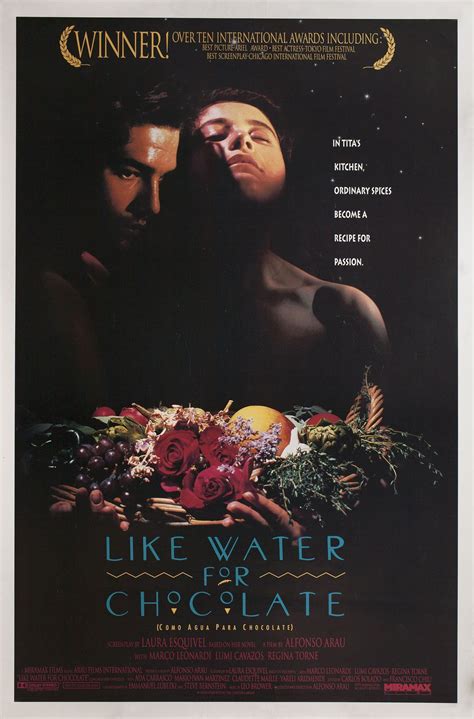Like Water for Chocolate

Description:
Like Water for Chocolate is a passionate tale of love and food set in Mexico at the turn of the 20th century. Tita is forbidden to marry her true love and expresses her emotions through her cooking, which has magical effects on those who eat it.Keywords:
Magical Realism, Love, Mexican Cuisine, Family Traditions, PassionWhat does the saying "like water for chocolate" mean?
The phrase "like water for chocolate" refers to the process of heating water to prepare hot chocolate, which requires the water to reach a boiling point. In the context of the movie and the novel by Laura Esquivel, it symbolizes intense emotions, particularly passion and desire. The idea is that just as water must reach a boiling point to make chocolate, people can experience overwhelming feelings that can influence their actions and relationships. The saying encapsulates the themes of love, longing, and the connection between food and emotion in the story.
Will there be a season 2 for Like Water for Chocolate?
As of my last update in October 2023, there is no official announcement regarding a second season for "Like Water for Chocolate." The project, originally a novel by Laura Esquivel, was adapted into a film in 1992, and a recent television adaptation was released in 2022. If you're looking for updates, it's best to check official sources or entertainment news for the most current information.
Where can I watch Original Like Water for Chocolate?
You can watch the original "Like Water for Chocolate" (1992) on several streaming platforms, including Amazon Prime Video, where it may be available for rent or purchase. Additionally, check services like Hulu, Vudu, or Google Play Movies for availability. It's also worth looking for DVD or Blu-ray options at local retailers or libraries. Always ensure to check the specific availability in your region, as it may vary.
What is the main message of "Like Water for Chocolate"?
The main message of "Like Water for Chocolate" revolves around the connection between food, love, and emotions. The film illustrates how the protagonist, Tita, expresses her feelings through cooking, with each dish reflecting her emotional state. It highlights themes of desire, repression, and the struggle for personal freedom against societal norms. Ultimately, the story emphasizes the power of love and passion, suggesting that true fulfillment comes from embracing one's emotions and desires, even in the face of tradition and familial expectations.
Explore More Categories:
Psychological Impact Sacrifice Exile Visual Daywalker Nature Jazz Teamwork Anti War Psychological Terror Puzzle Immigration Skepticism Cultural Identity Witness Protection Obsession Life S Journey Intense Filmmaking Experimentation Undercover Buddy Film Nonlinear Narrative Outbreak Biographical Drama